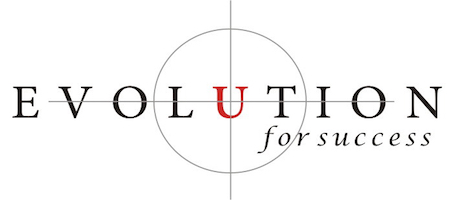Wim Hof Live Retreat Review
Wim Hof (the Iceman) hosted his first ever Live Retreat Weekend on Feb 13-14 2021. Overall, it was an amazing couple of days! Here is my short review recorded Sunday night right after the event. I have committed to 30-days of breathing and cold showers and will have a follow up video with my results!
If you prefer to read rather than watch the video of my Wim Hof review, I have included a transcript below. Enjoy!
Wim Hof Review Video Transcript:
Hey everybody, James Murphy from Evolution For Success, and I’m so excited to bring you this impromptu Sunday night video. I just completed the first ever Wim Hof Live weekend, it was a Saturday and Sunday –six hours both days– and it was absolutely wonderful! I just had to make this video because I’m like I’m feeling so great after two cold showers. I wanted to just give you a couple of a couple cliff notes of the seminar, and how great it was.
[0:30] First of all, some of the pros: It was really easy. It was only $60 for the two days. The Zoom meeting went off perfect. I t was easy to log on and off. They did a great job bringing some simple structure to it. They had the itineraries mapped out both days which was really nice. And they did have a couple of little audio snafus here and there with the microphone and some music at one point at the end of the meditation on day one. But what I learned from that was absolutely fantastic! How Wim Hof reacted to that… talk about great! It was just a great learning moment. He was absolutely perfect for what needed to be for that event in terms of actually illustrating how to deal with stress.
[1:10] So, for those of you who don’t know, real quick, Wim Hof is famous for his ice immersion and breathing. He’s called The Iceman because he does immersion cold therapy or cold immersion. And, but what’s really interesting about it is about the man himself. He opened up on day one about some of his life struggles which I had no clue about, but it’s really really interesting. And what I love about him is number one that he’s absolutely a man on his purpose. He’s here to change the world by basically helping people from the inside out shift and change their physiology, improve their immune systems, and really become back in tune with themselves and who they are and what they are. Because then you can find your purpose. So in terms of a man who’s purpose driven, oh, he steals the show! He has my heart, absolutely 100% in terms of purpose.
[2:00] The second thing is, you know, we talked about values that drive our behaviors, his values are really really simple. It’s just happiness, strength, and health. That’s it. He just wants people to have more strength, be stronger with better health, and be happy. That’s it. It’s really simple. So his values are very clear. Where he’s coming from is very clear. He’s very genuine and he holds no punches.
[2:29] And he really holds an interesting juxtaposition between science –because everybody has been studying him, science wise so he’s very very clear on the scientific aspects of his work and what it does, but at the same time he’s like, “look past science to just experience it”. He keeps saying “feeling is understanding”. And he said, the breathing and the ice immersion/cold baths are really meant to do two things. One is, of course, the benefits for the immune system. But, but really it’s about deepening the awareness of who you are inside. Aligning and integrating your whole brain. He’s always like going ”We need to bring your brain and your heart back into center.” But it’s not fluffy; that’s the weirdest thing. Some people say that’s definitely soft or fluffy, but he’s actually saying “Hey there’s science behind this, it works on so many different levels.”
[3:30] So whether it’s the breathing, or whether it’s the cold shower aspect of it, basically he wants to have you build awareness of your body, and reset your immune system by resetting the autonomic nervous system. Now the autonomic nervous system is what guides all of the unconscious systems in the body (i.e. processing our food, growing our fingernails, thinking, breathing… all those things). Now, under the autonomic nervous system, there’s the parasympathetic and sympathetic nervous system, and I need to look at my notes on this one, to make sure I get right… the sympathetic nervous system is our fight or flight. It’s active. The parasympathetic system is the breathing and the relaxation piece.
[4:28] So is all the breathing tools, the ice work, and the cold shower stuff, what that does is just helps balance those two systems. 30 to 40 breaths of the breathing, fully in and then out the 30 to 40 breaths of that actually engages that sympathetic nervous system to make you act. But then when you hold your breath at the end that engages the parasympathetic nervous system to bring you into balance. And when those two things are in balance, that’s what everybody wants. In that meditation, I had some really wonderful deep intense meditations. It was absolutely crazy. So, there’s some real aspects to opening up the brain in the mind by doing this.
[5:15] They went over five simple reasons for doing the Wim Hof Method. Let’s talk about this real quick. One is that it strengthens your immune system. I just said that. Number two is it lowers inflammation in the body and he believes that inflammation is the core of most disease in the body. Number three is that it helps with pain reduction. Number four, is that it helps train the cardiovascular system for greater balance. And as I said it balances the autonomic nervous system.
[5:44] What else is really great about this is he kept saying “Feeling is understanding”, and “Let’s go past the science to the experience of it.” That’s the other thing I absolutely love. It doesn’t matter whether you’ve never done it before or if you’ve done it before… any of the breathing, he’s just like: “Just experienced it”. There had some people who were saying “Hey I don’t want to do the showers.” His response is “fine, don’t do the showers, just do the breathing. You don’t need the showers.”
[6:07] Even with the cold showers or cold immersion or cold bath, he said “two minutes is all you need for the health benefits. Anything after two minutes is just mental and emotional training.” So he’s like: let’s move past the complex back to the simple. And that’s what I love. It’s just like in Kung Fu, or Tai Chi, or any of those martial arts, the body moves in so many ways and it bends or in so many ways or it breaks. So he really keeps it simple, but it’s powerful, it’s effective and I feel like a million bucks.
[6:40] So ultimate leverage coming out right now, and then I’m going to wrap this up real quick. I’m going to commit to doing this for the next 30 days, and by the way if you want more information around this, we just released a little bit ago, on our website EvolutionForSuccess.com, an actual full Wim Hof article with links and everything included He does have a Wim Hof Method mobile app as well. I’m going to download that tonight. It’s free initially. After that it asks you to pay for a membership, and so I’m going to go in and I’m going to buy that and for the next 30 days, I’m going to do the Wim Hof method every single day. Might not do a cold shower or an ice bath necessarily, but he said you can just walk outside on the deck and just stand in the corner. You can do whatever you want to do, but I’m going to do the breathing, and something cold for the next 30 days. And I’m going to give you an update and see how it goes.
[7:30] They’re even giving us access to the webinar after they edit it so we can view it for another 30 days afterwards so I think they really over delivered on the price. I would absolutely do it again. And I’ll be blasting out to the network next time it’s out there.
[7:45] I get nothing from it, except the, knowing that I helped you maybe change your life so there’s plenty of other reviews online too but I’m giving you this one. So take care and continue to run your race, and we’ll talk to you soon. Have a great day!


